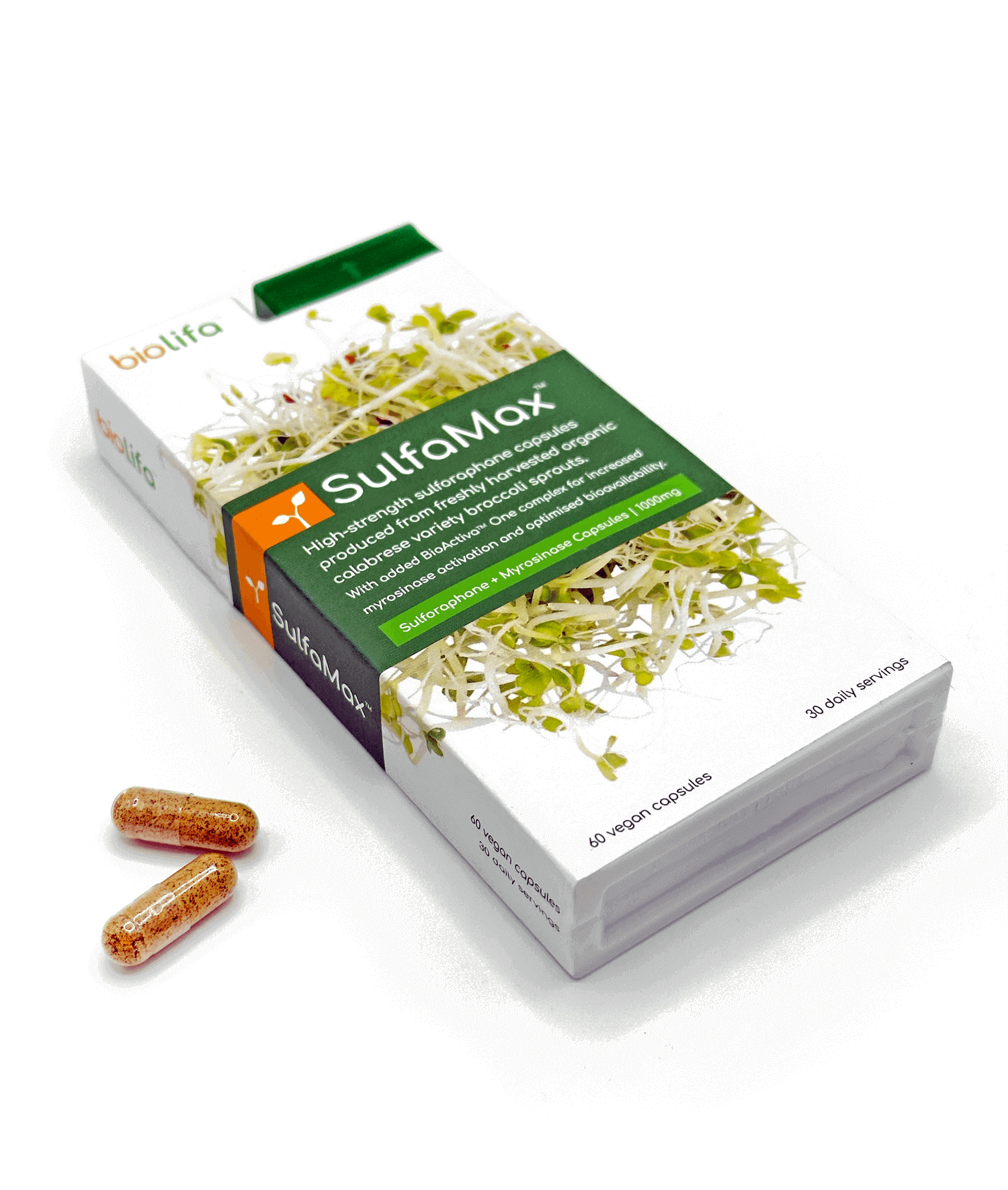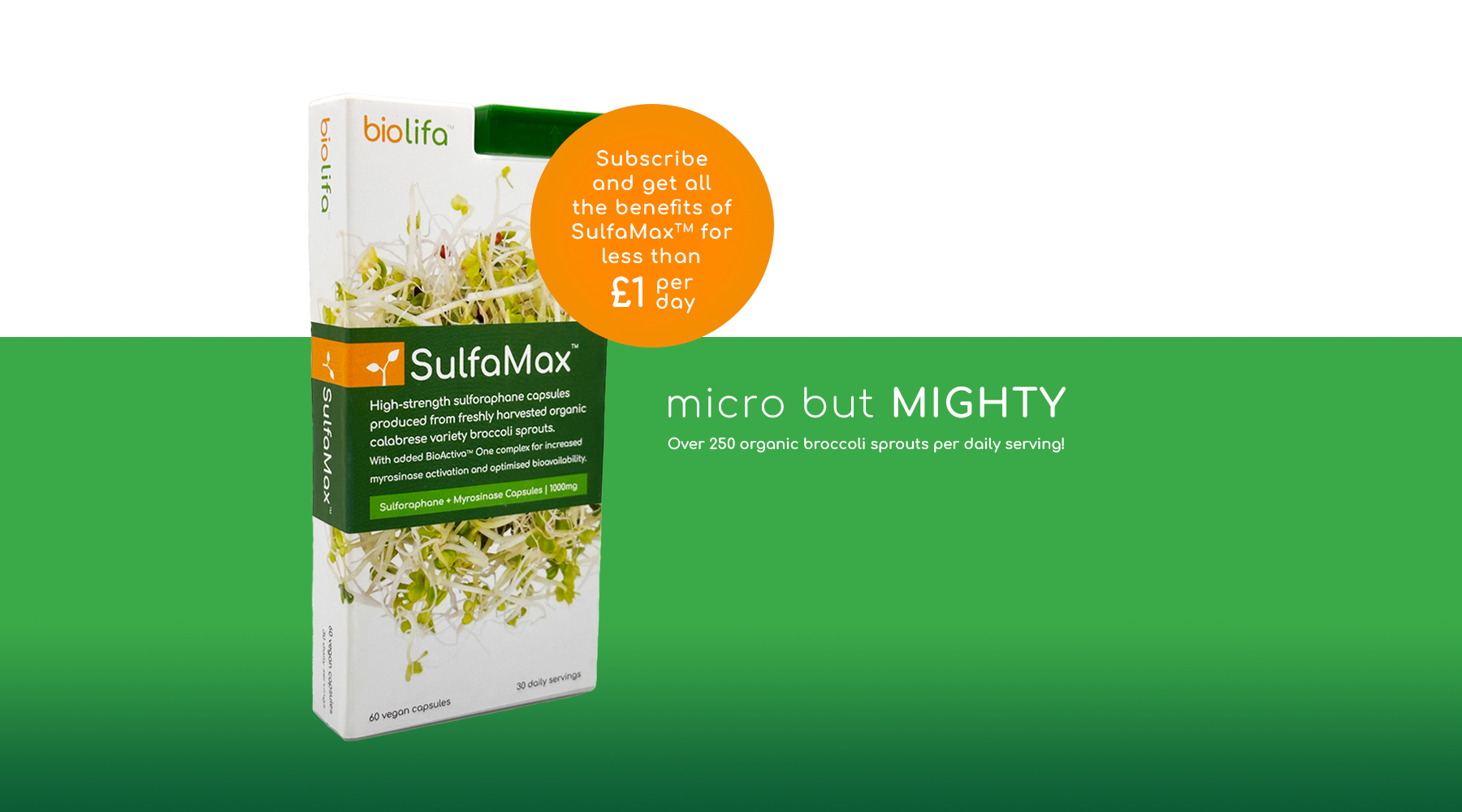Diabetes is a chronic condition characterised by high blood sugar levels due to the body’s inability to produce or use insulin effectively. It affects millions of people worldwide and is a leading cause of many serious health problems, such as heart disease, kidney failure, and blindness. While there is no cure for diabetes, research has shown that certain compounds found in foods, such as sulforaphane, may be beneficial in the prevention and management of this condition.
Sulforaphane is a compound found in cruciferous vegetables, such as broccoli, cauliflower, and Brussels sprouts. It is produced when these vegetables are chopped, chewed, or otherwise damaged. Sulforaphane has been found to have many health benefits, including anti-inflammatory and antioxidant properties. It also has the potential to improve insulin sensitivity and glucose metabolism, which are key factors in the development of diabetes.
One study conducted by researchers at the University of Gothenburg in Sweden found that sulforaphane could improve glucose control and insulin sensitivity in people with type 2 diabetes. The study involved 97 people with the condition who were randomly assigned to either a group that received a supplement containing sulforaphane or a placebo group. After 12 weeks, those in the sulforaphane group had significantly lower levels of fasting blood sugar and hemoglobin A1c (a marker of long-term blood sugar control) compared to those in the placebo group.
Another study published in the journal Diabetes Care found that sulforaphane could improve glucose metabolism and reduce oxidative stress in people with type 2 diabetes. The study involved 81 people with the condition who were randomly assigned to either a group that received a supplement containing sulforaphane or a placebo group. After 12 weeks, those in the sulforaphane group had significantly lower levels of fasting blood sugar and oxidative stress markers compared to those in the placebo group.
Sulforaphane may also help to prevent the development of diabetes in the first place. A study published in the journal Diabetes found that sulforaphane could protect against the damaging effects of a high-fat diet in mice. The study involved feeding mice a high-fat diet with or without sulforaphane supplementation. The researchers found that the mice that received sulforaphane had significantly lower levels of inflammation and oxidative stress, as well as improved insulin sensitivity and glucose metabolism, compared to those that did not receive the supplement.
While more research is needed to fully understand the potential benefits of sulforaphane in the prevention and management of diabetes, these studies suggest that it may be a promising tool in the fight against this chronic condition. But how can you increase your intake of this compound?
One way to incorporate more sulforaphane into your diet is to eat more cruciferous vegetables, such as broccoli, cauliflower, and Brussels sprouts. These vegetables are also rich in other nutrients, such as fiber, vitamins, and minerals, that are important for overall health. It is recommended that adults eat at least 2.5 cups of vegetables per day, including a variety of colors and types.
Another option is to take a sulforaphane supplement. These supplements are available in capsule or powder form and can be found at health food stores or online. However, it is important to speak with your healthcare provider before taking any supplements, as they may interact with other medications or have side effects.
In addition to increasing your intake of sulforaphane, there are other lifestyle changes you can make to help prevent and manage diabetes. These include:
- Eating a healthy diet: A diet rich in whole grains, fruits, vegetables, lean protein, and healthy fats can help to regulate blood sugar levels and reduce the risk of developing diabetes.
- Getting regular exercise: Exercise can help to improve insulin sensitivity and glucose metabolism, as well as aid in weight loss, which is a key factor in diabetes prevention and management. Aim for at least 150 minutes of moderate-intensity exercise per week, such as brisk walking or cycling.
- Maintaining a healthy weight: Being overweight or obese increases the risk of developing diabetes. If you are overweight, losing just 5-10% of your body weight can significantly reduce your risk.
- Managing stress: Chronic stress can increase blood sugar levels and contribute to the development of diabetes. Find ways to manage stress, such as through meditation, yoga, or deep breathing exercises.
- Quitting smoking: Smoking is a major risk factor for many chronic diseases, including diabetes. If you smoke, talk to your healthcare provider about ways to quit.
In conclusion, sulforaphane is a promising compound with potential benefits in the prevention and management of diabetes. While more research is needed to fully understand its effects, incorporating more cruciferous vegetables into your diet and considering a sulforaphane supplement may be beneficial. Additionally, making lifestyle changes such as eating a healthy diet, getting regular exercise, maintaining a healthy weight, managing stress, and quitting smoking can help to reduce your risk of developing diabetes and improve your overall health. As always, it is important to talk to your healthcare provider before making any significant changes to your diet or exercise routine.







